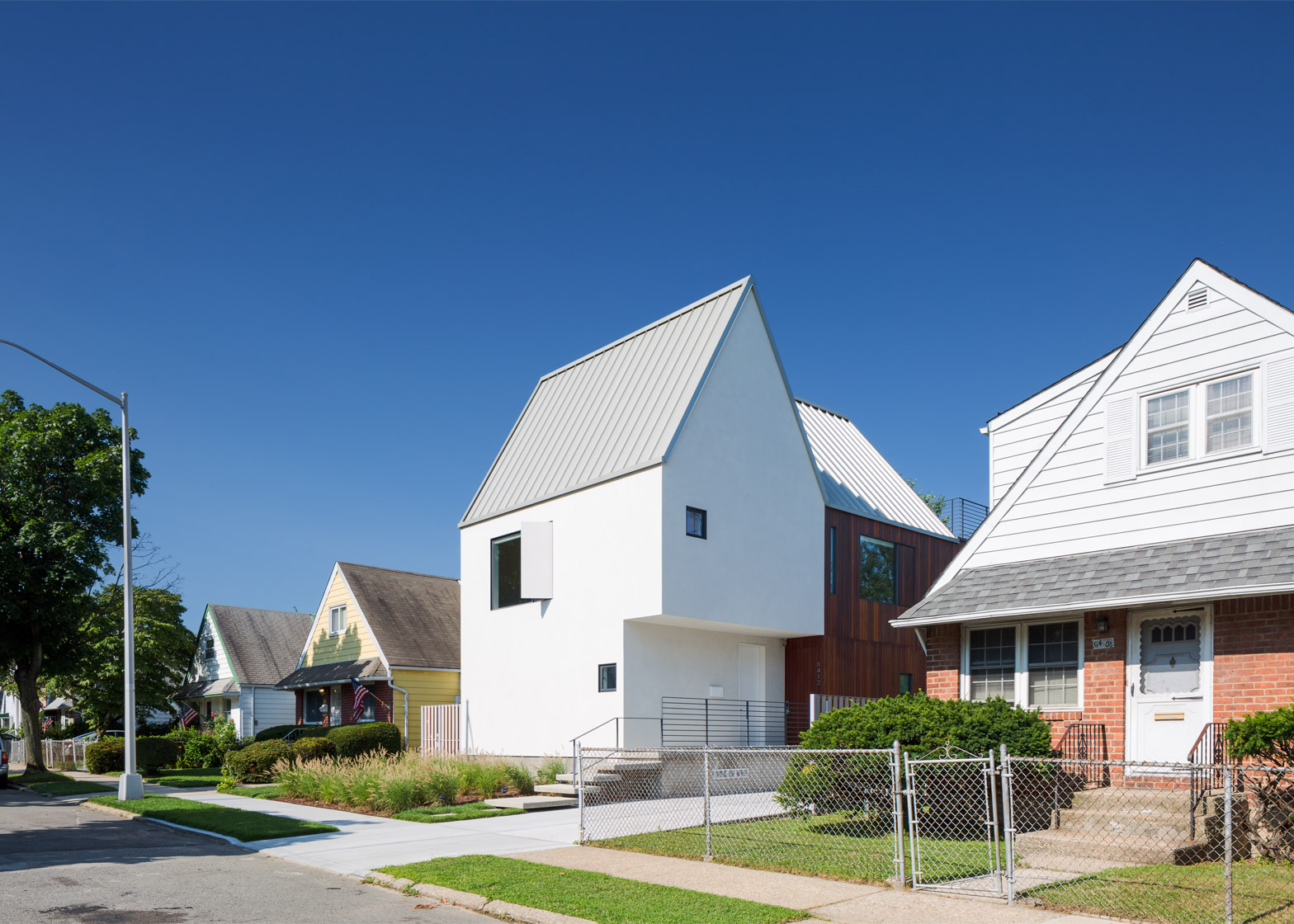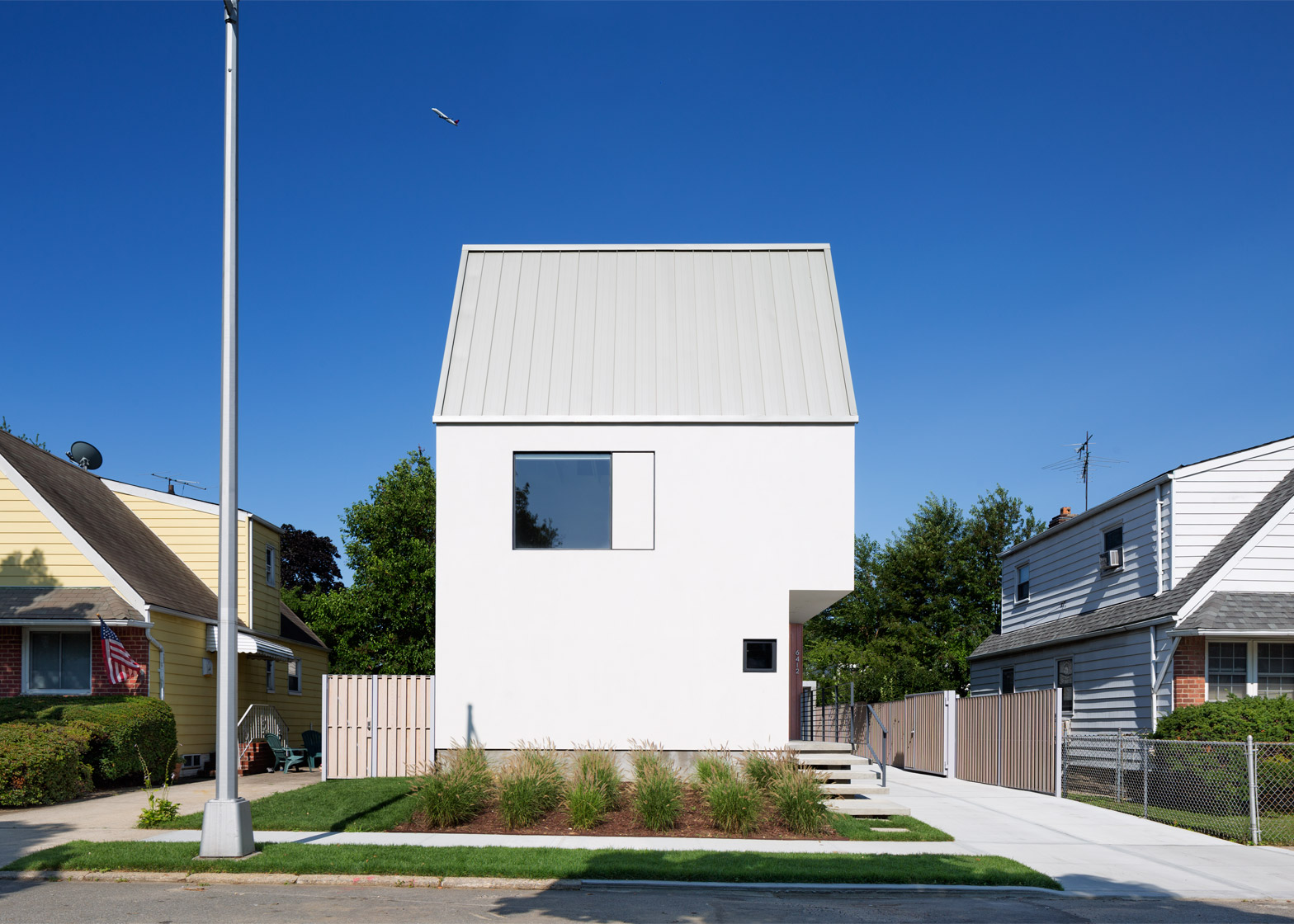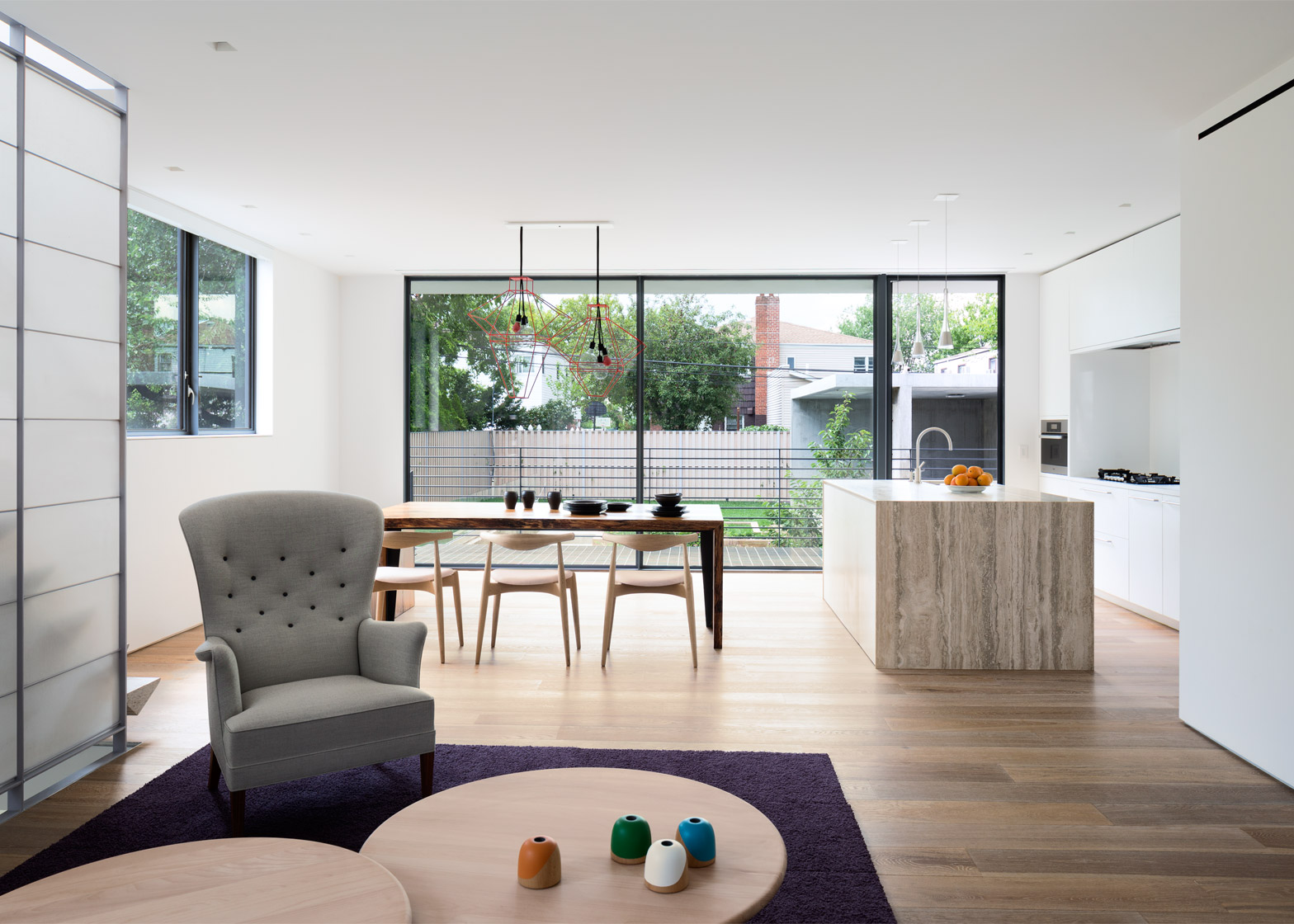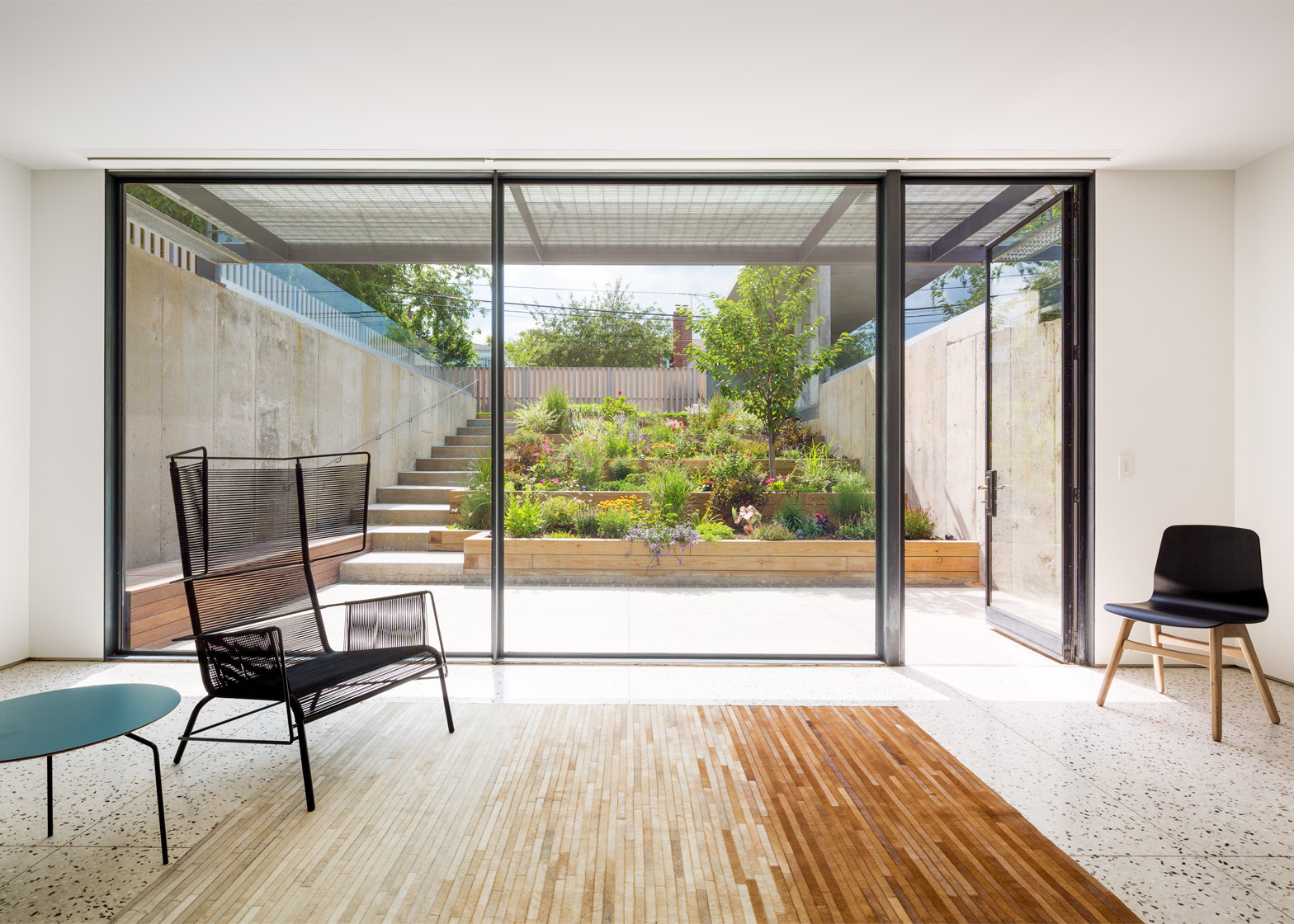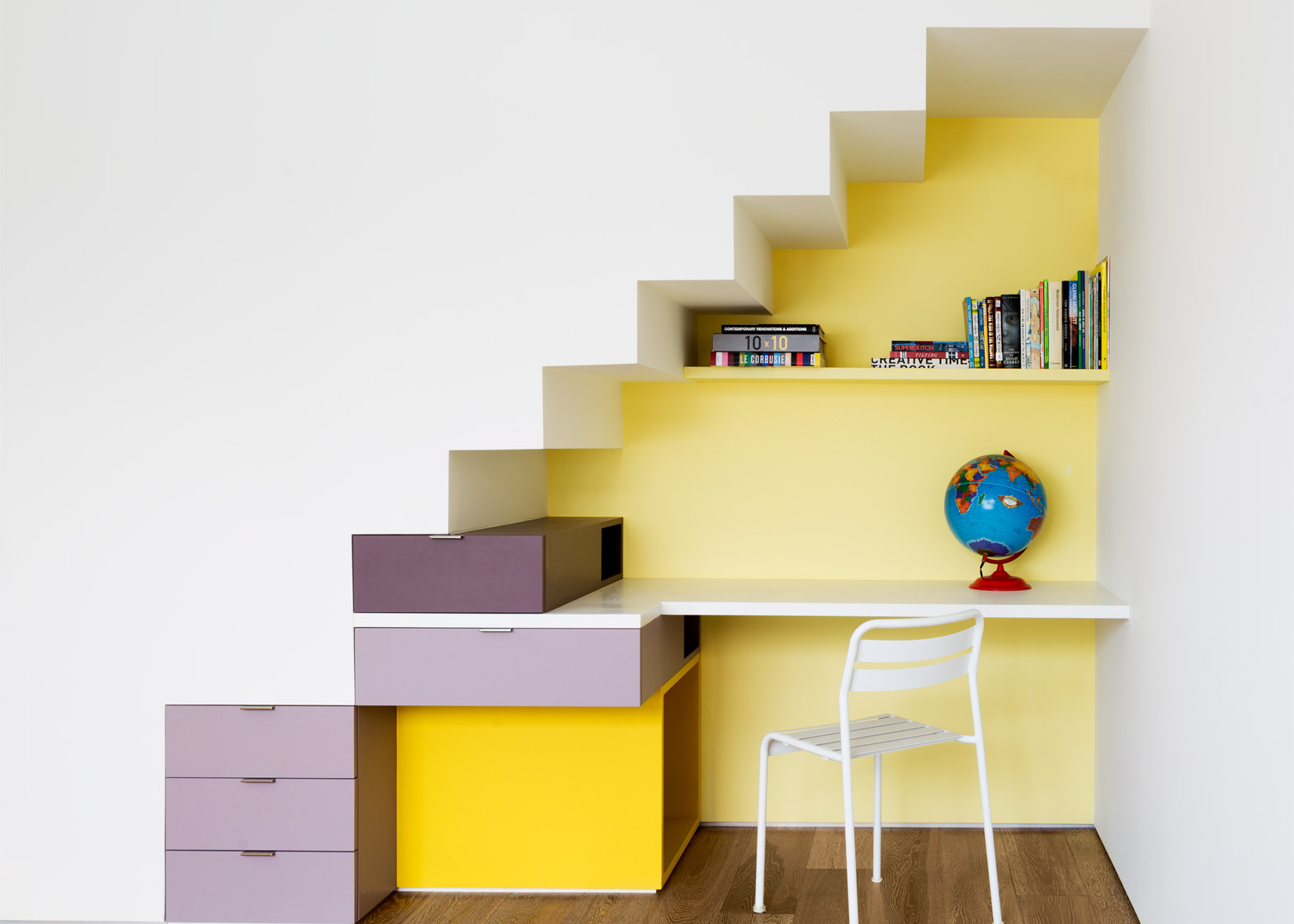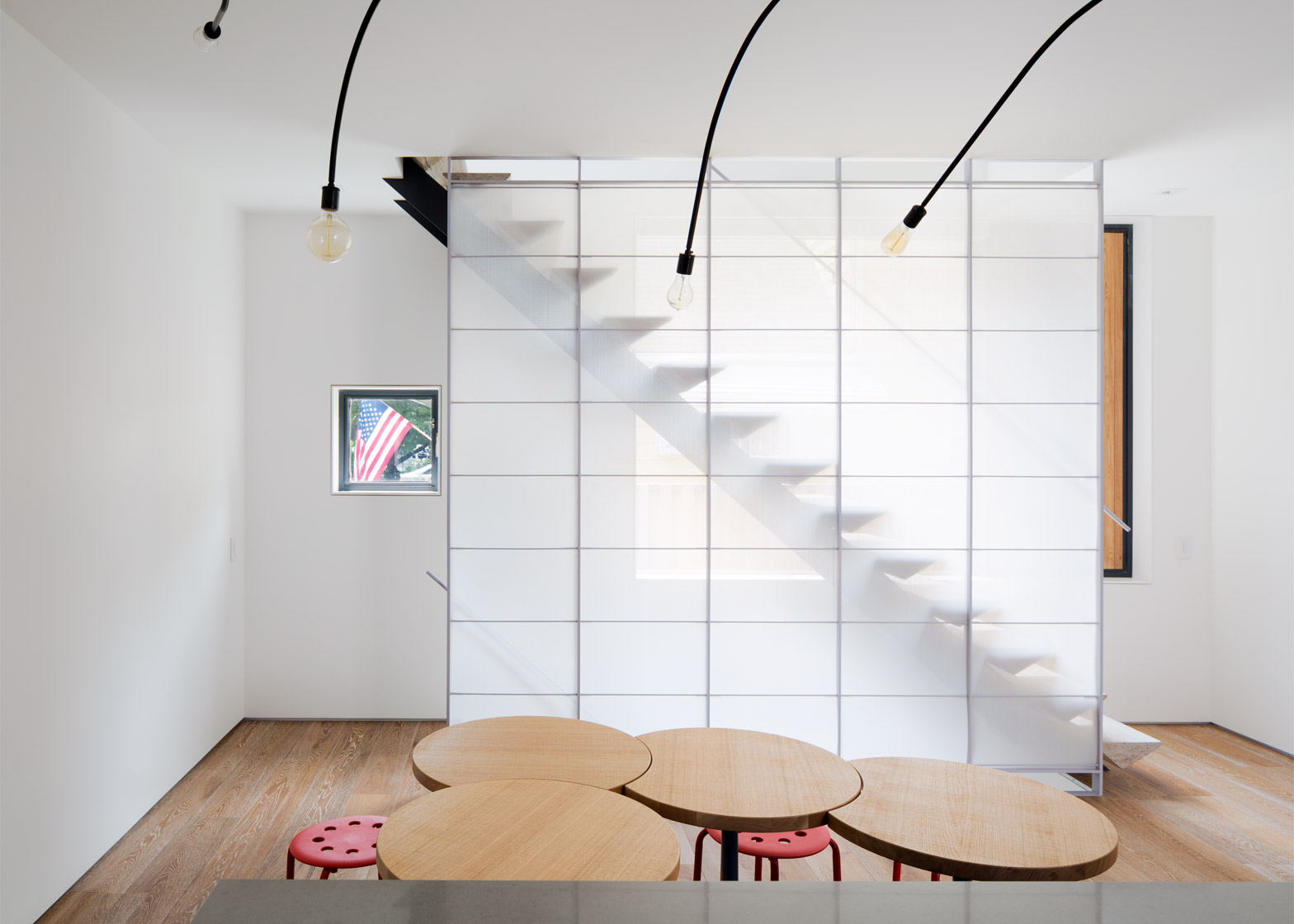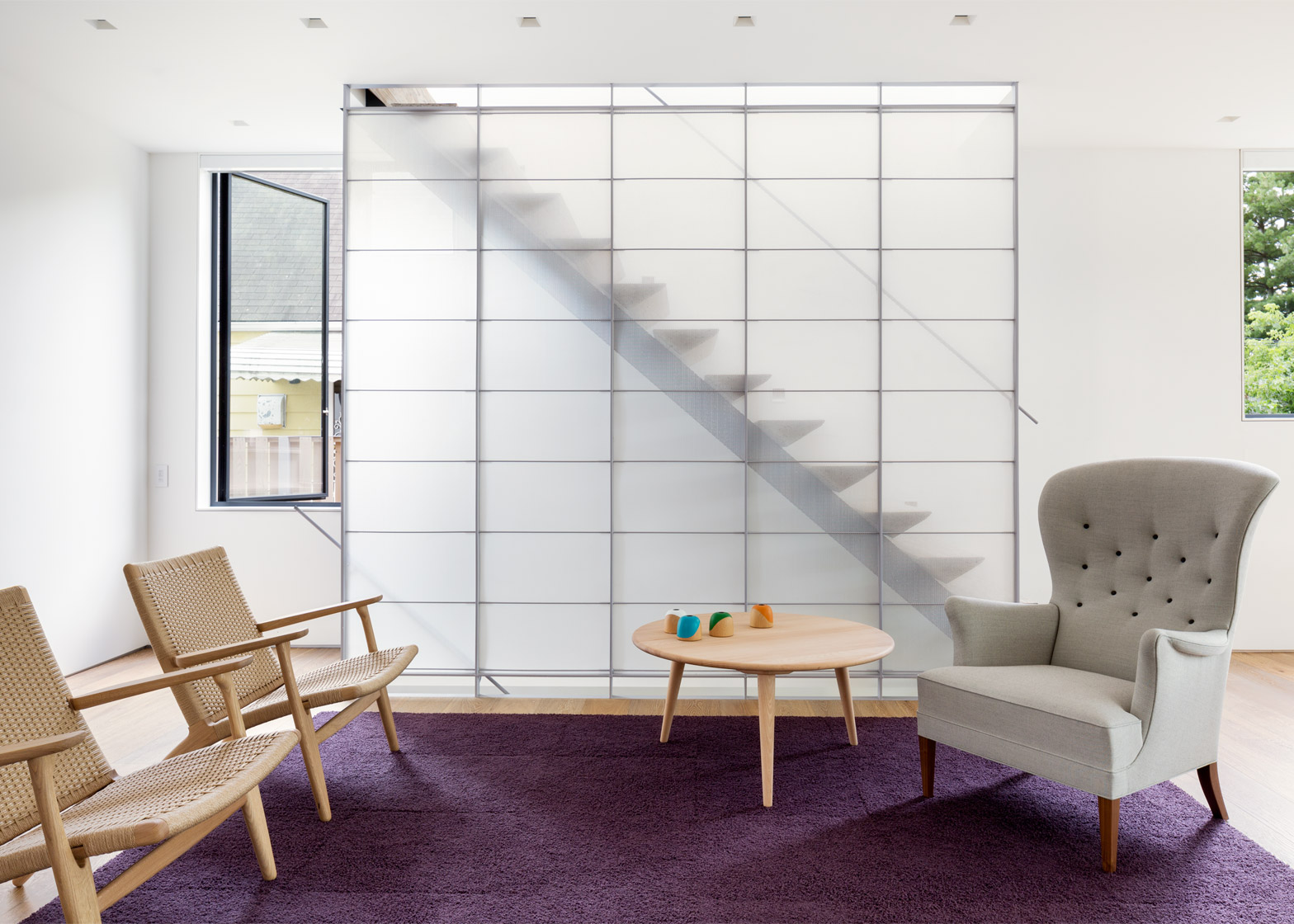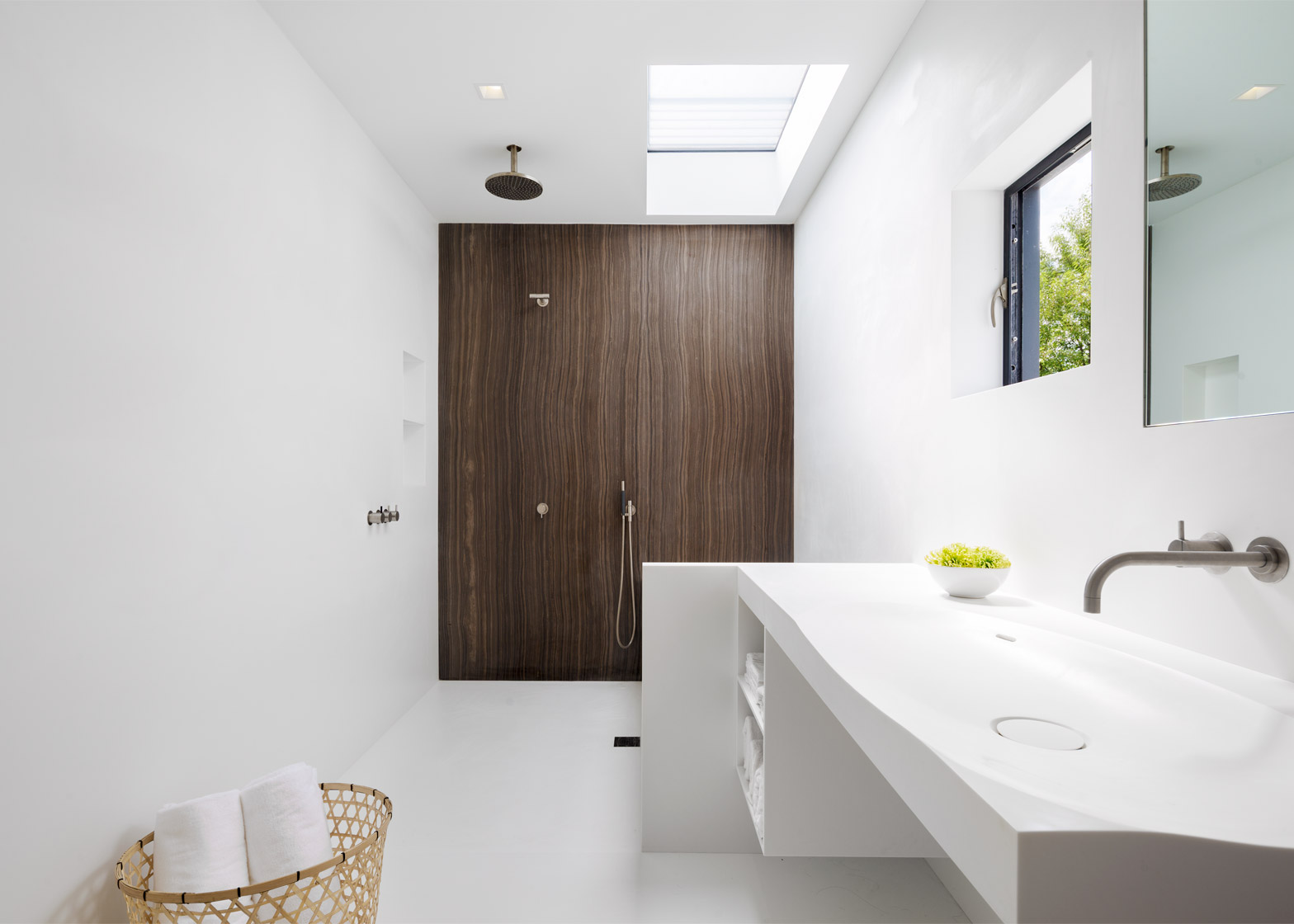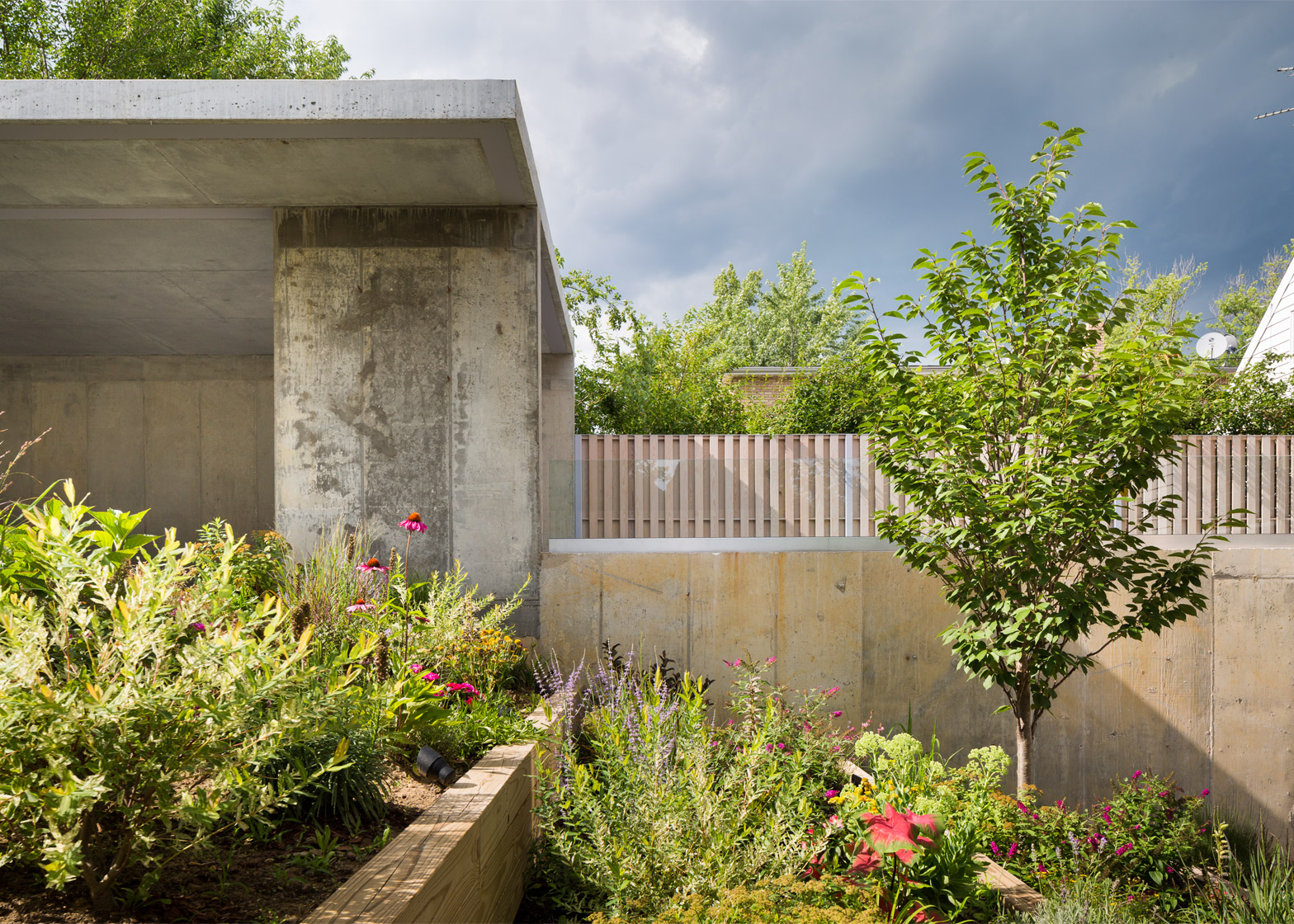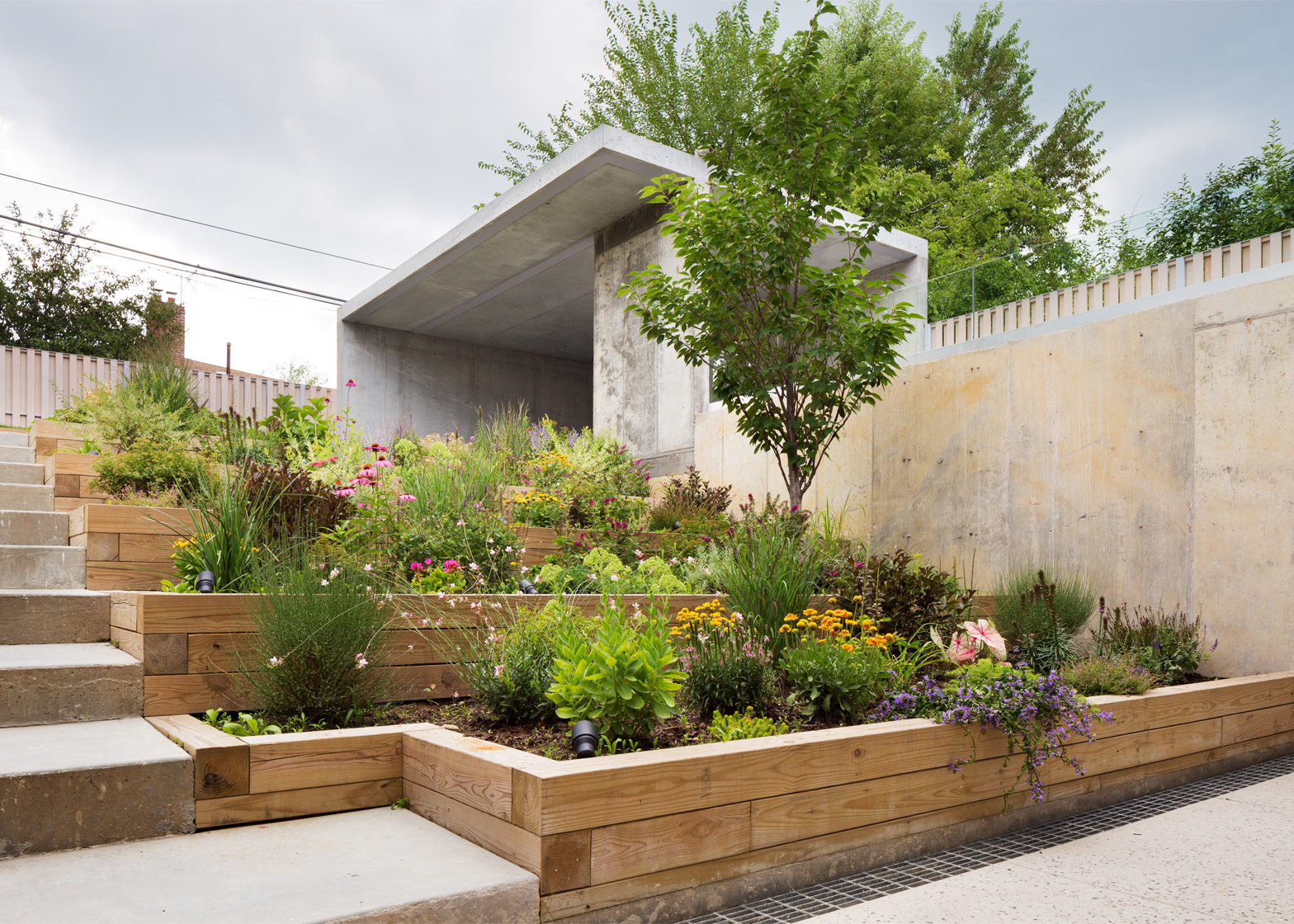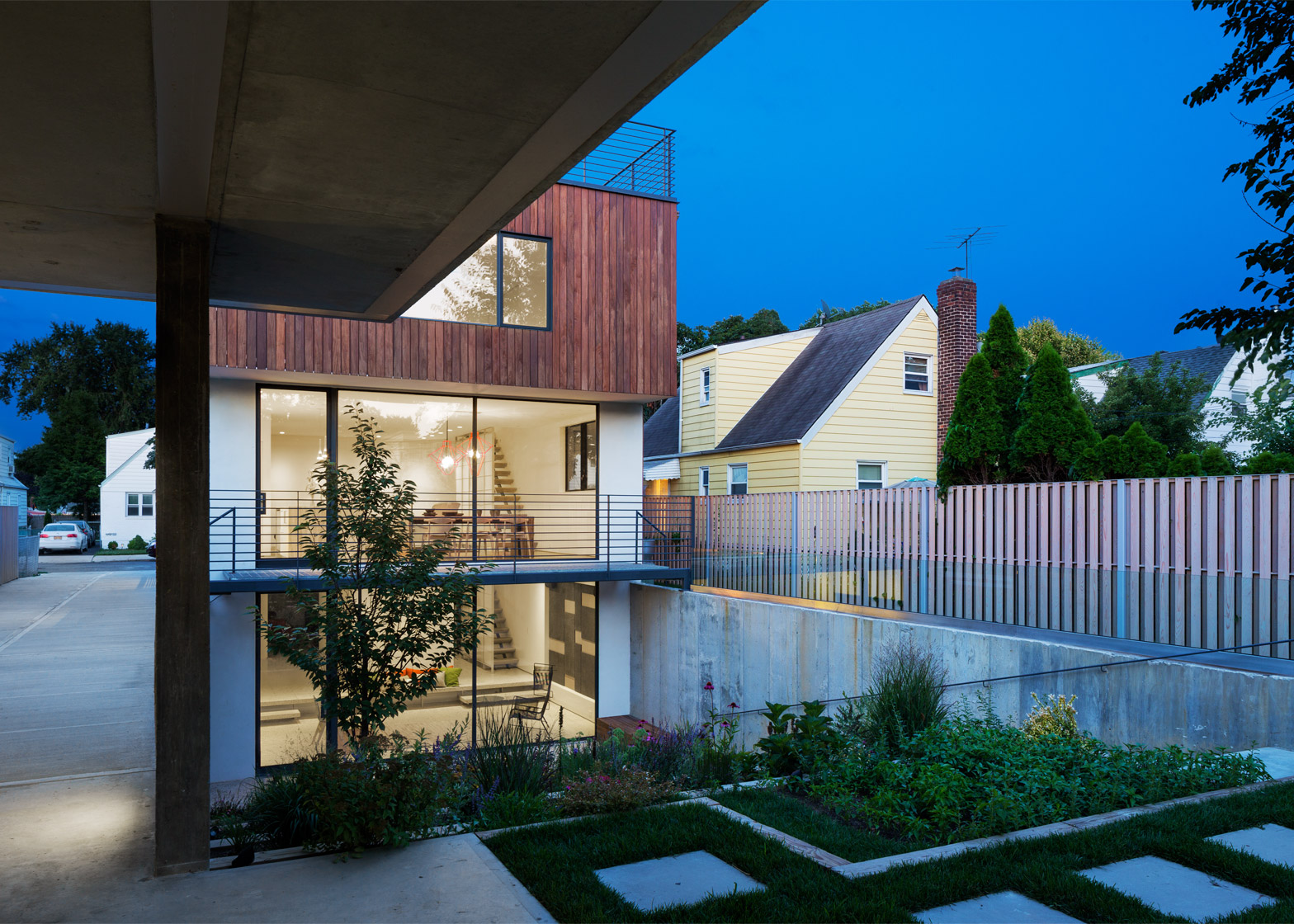Different cladding materials distinguish three separate homes in this New York property, which was designed by O'Neill Rose Architects for an extended family (+ slideshow).
The Brooklyn architecture studio was asked to design the house for a builder and his extended family in Flushing, a neighbourhood in Queens that is largely populated by single-family dwellings.
O'Neill Rose Architects came up with a design that provides three distinct but connected homes under one roof, which the team believe fuses Chinese and American ways of living – referencing the family's mixed heritage. They named it Choy House.
"The Choy House reexamines the idea of an American home by combining traditional Chinese notions of extended family with the more typical American focus on the nuclear family," explained the architects.
"He [the client] wanted the home to reflect his heritage while at the same time giving his immediate family the privacy he had become accustomed to."
The exterior is finished in a combination of white stucco and ipe wood, giving each residence its own identity, while window frames, door surrounds and railings are made from painted steel to add a touch of uniformity.
A narrow three-storey block with a pitched roof and white rendered walls stands closest to the street, providing a home for the client's brother and his wife. A notch cut into one corner of this block creates a porch over its entrance.
The remainder of the first and second floors are clad in lengths of red-toned ipe wood. They offer a larger home overlooking the back garden for the client, his wife and their two young children.
These two residences are connected by a semi-basement level, containing a shared lounge and accommodation for the client's mother. This space offers direct access to the sunken garden.
Höweler + Yoon Architecture applied a similar concept to another multi-generational house in Virginia by arranging a trio of blocks in a bridge-like formation to give the family separate living spaces.
"With front doors only a few feet from each other, the brothers live as neighbours, and all of the spaces connect through the lower level; the ground floor family room, the terraced garden, and outdoor pavilion are primary gathering spaces for the whole family," said the architects.
A small concrete pavilion is tucked away in the corner of the terraced garden. It offers a secluded spot for the grandmother, who spends much of her time tending to the garden – which is planted with Chinese medicinal herbs, flowers and vegetables – and looking after her grandchildren.
The pavilion also doubles up as a barbecuing space where the extended family, many of whom live nearby, congregate.
Inside, rooms are finished with wooden floor and bright white walls, with accents of colour added to the children's rooms.
Many of the interior finishes are a collaboration between O'Neill Rose Architects and the client, using up excess materials from his other construction projects. The staircase is made from left-over engineered wood beams, while light fittings are designed using scrap metal.
O'Neill Rose Architects was founded by Devin O'Neill and Faith Rose in 2008, a decade after they graduated from Yale Graduate School of Architecture.
Photography is by Michael Moran.
Like Dezeen on Facebook for the latest architecture, interior and design news »
Project credits:
Architecture: O'Neill Rose Architects
Windows: Bliss Nor-Am
Attic stair, bathroom walls, counters, and sinks: Corian
Living room and dining room chairs: Carl Hansen and Søn
Armchair and kitchen table: Ligne Roset

